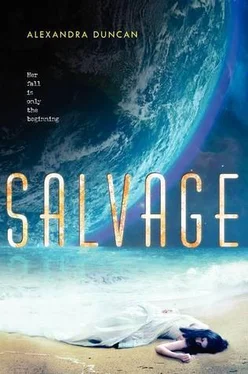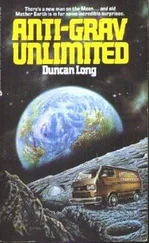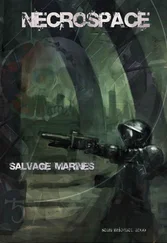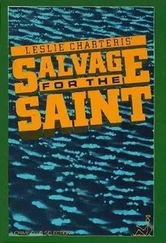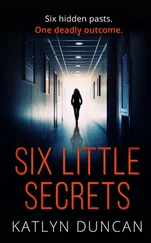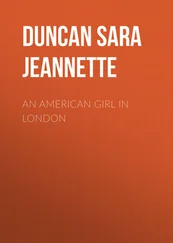“Rushil, wait.”
He stops and turns back to me. We stare at each other, the awkwardness growing. I don’t know how to say what I mean—that his kindness is making me uneasy, even if it’s well meant.
“Can I show you something?”
I climb into the sloop’s hold and mount the ladder to the cockpit. Rushil follows me silently.
Dust has settled on the controls, and the air has gone stuffy and still. I move aside so Rushil can see the cockpit walls, covered floor to ceiling in Miyole’s metal art. The fish-tailed women and roosters and boats ripple in the afternoon sun, muted colors surfacing in the brown and gray metal, like the rainbow in an oil slick.
Rushil comes to a stop in the door, mouth open. I recognize the look that crosses his face—surprise, confusion, slow-dawning delight. It’s how I felt the first time I saw all of her creatures gathered together this way.
“What are they?” he asks.
“Miyole makes them.” I swallow a lump in my throat. “Made them. Before.”
Rushil touches one of them, a flaming heart, gingerly. “They’re beautiful. She could sell these down by the station.”
I shake my head. “She made them for her mother.”
“Oh.” Rushil winces. “Sorry. Foot in mouth.”
“When we lost her . . .” I stop and clear my throat. “They said it never stormed there, but there was a storm. And Miyole’s mother, she had me fly the ship while she went down to the rooftop. . . . ”
I stare straight ahead at a sun radiating wavy lines. “Sometimes I think, It should have been me. I should have gone down to get her, and then Perpétue would be alive, and Miyole wouldn’t be like this. They would both be alive.”
“But you wouldn’t be,” Rushil says quietly.
I shrug. “What difference would that make?” If I weren’t in the world, who would even know? Wouldn’t Perpétue have been of more use alive than me?
“Don’t talk like that.” Rushil’s voice is low, but there’s a tremor to it. “You don’t know . . . you don’t know how it would have been different.”
“I’m sorry.” I sink down in the captain’s chair. “I just . . . I don’t want her to be like this anymore. I want her back to herself.”
“I know.” He takes the other seat, putting us knee to knee. “It’s only . . . you never know who’s going to need you. Or want you here.” He reaches out and squeezes my hand.
I freeze at his touch—he’s a boy, a man, a strange man—and then the gentle pressure on my palm sends a tender warmth through me, from my heart to my fingertips. I near shiver with it. How often has someone touched me kindly?
I meet his eyes. I never thought a boy—a man—would be the one to understand me, or even want to try. Rushil leans forward, as if to say something.
But Luck. I close my eyes. How can I forget Luck, even for a breath? I pull my hand from Rushil’s.
He clears his throat. “So how does she make these?” He twists around to look over Miyole’s collection.
“Scrap,” I say. “And a metal burner.”
“Maybe she could make some new ones.” He turns back to me. “Give her something to do, instead of lying in the dark all day.”
I shake my head. “We lost her burner.”
“Psssh.” Rushil waves my words away. “You can get a cheap one from any of the junk dealers down by the station.”
I start to protest, but Rushil holds up his hands. “I’m not trying to buy anything else for you. I’m just telling you where you can get one if you want it.”
I smile. “Thank you.”
“But if you want some scrap metal . . .”
I groan. “Rushil!”
“What?” He grins.
“Stop being so nice to me!” I’m only half joking.
“Okay.” Rushil lays a hand over his heart. “I solemnly swear to be a total gandu from now on.”
I can’t help it. I laugh, and playfully punch him in the arm. “Come on. I owe you a curry for this afternoon. You can be a . . . a gandu while we eat.”
I step off the train at Sion station in the early evening, coins from my day at Powell-Gupta jingling in my pocket. I’m getting better at being a chai wallah. I can make the tea nearly as fast as Doya can, and I’ve learned everyone’s name on the twenty-seventh floor—floor, not tier—as well as their particular tastes. Sweet pickles for Mr. Darzi, cigarette gum for Miss Sharma, who Rushil has taken to calling Miss Shirty on account of her being so impatient, and caffine pills for Ms. Chaudhri, who has two smallones at home. I’m even starting not to care when Ajit shouts at me. And best of all, now I have enough to buy Miyole a metal burner.
Dozens of street vendors sit outside the row of shops and tapris across from the station, their wares spread out around them on blankets. I pass booths selling glasses some like Rushil’s, what seem to be the fashion in parts of Mumbai, jewelry in cheap, candy-bright plastic, printed fabric rolled up in bolts, and finally, what I’ve come for, tubs full of used crows, power cells, and other parts.
“Looking for anything in particular?” The vendor, a girl a few turns older than me with neon bangles clacking up and down her arms, wanders over to inspect the bin with me. “Those are all fifteen rupaye apiece. You won’t find a better price.”
I push a clump of stick-on LED lights aside and spot what I’m looking for. It’s mostly bust and sports a bigger, clunkier grip than Miyole’s old burner, but Miyole’s hand will grow into it, and I’m certain I can find whatever fix it needs. It will set me back a small bit in the way of repaying Rushil, but more than I need even ground with him, I need Miyole well.
A voice catches my ear. “On me and my wives, our thanks.”
The words pierce the friendly market buzz and strike me still. It can’t be. I make myself look up from the bins.
A group of bleached-pale men stands a half dozen strides down the street, talking to a Mumbaikar in a gray suit with an orange pocket handkercheif. On first glance, they all look like the same man—the same long, straight white hair under their broad-brimmed sunshield hats, the same rubber-padded white suits standing out stark against the street’s gingery dirt, the same chalk-pale gloves hiding their hands. The protective shadow cast by their headgear hides their faces, but I know them. The Nau. Here, in Mumbai, in the Salt. What are the Nau doing here?
“You like it?” The girl nods at the burner I hold clutched to my chest. “It’s a good one. Only needs a little shine and it’ll work again.”
“R-right.” I glance at the burner and then back to the crewe. I should be answering the vendor, haggling down the price, but they’re so near. I can’t breathe. Will they know me on sight? If they do, they’ll tell my father and brother where I am, certain sure, and then I’ll have to run again. Except how far will we get without the sloop?
The head Nau—the captain, most like—delivers a curt bow to the gray-suited man and motions the others to follow him up the street. They’re coming my way. I duck my head and pretend to examine the bin’s contents again.
“Kumaari?” The vendor touches my arm. “Are you all right?”
I come aware of my own breathing—loud, harsh gasps—and try to swallow it down.
“Fine.” I wave her concern away. They won’t know me. I look some different than I did when I left my crewe. They’d be looking for an ash-faced, red-haired girl. But my heart won’t listen to reason. The Nau move closer, strolling, examining the vendors’ wares. Every few feet they stop, point, and mutter to themselves.
Читать дальше
